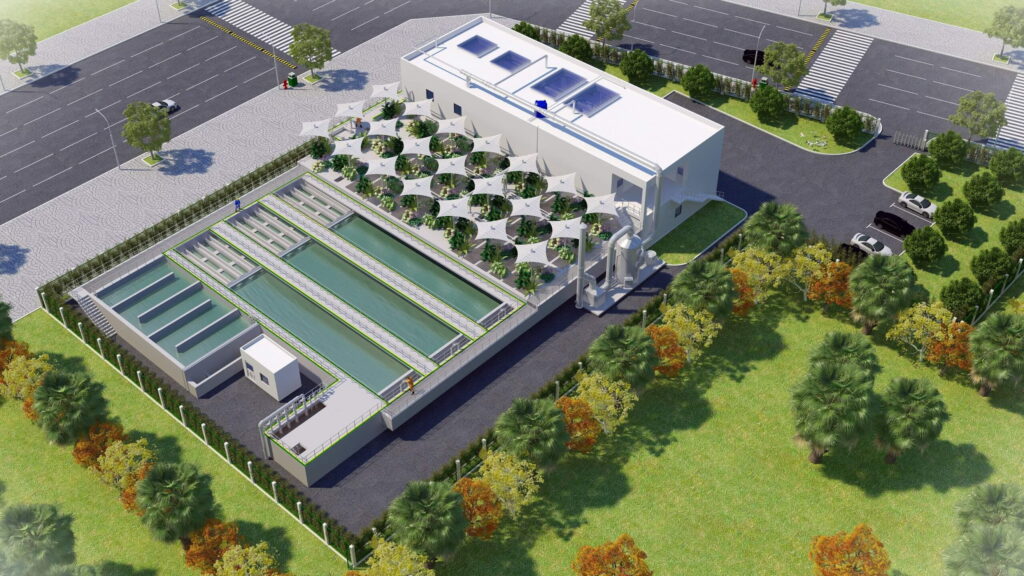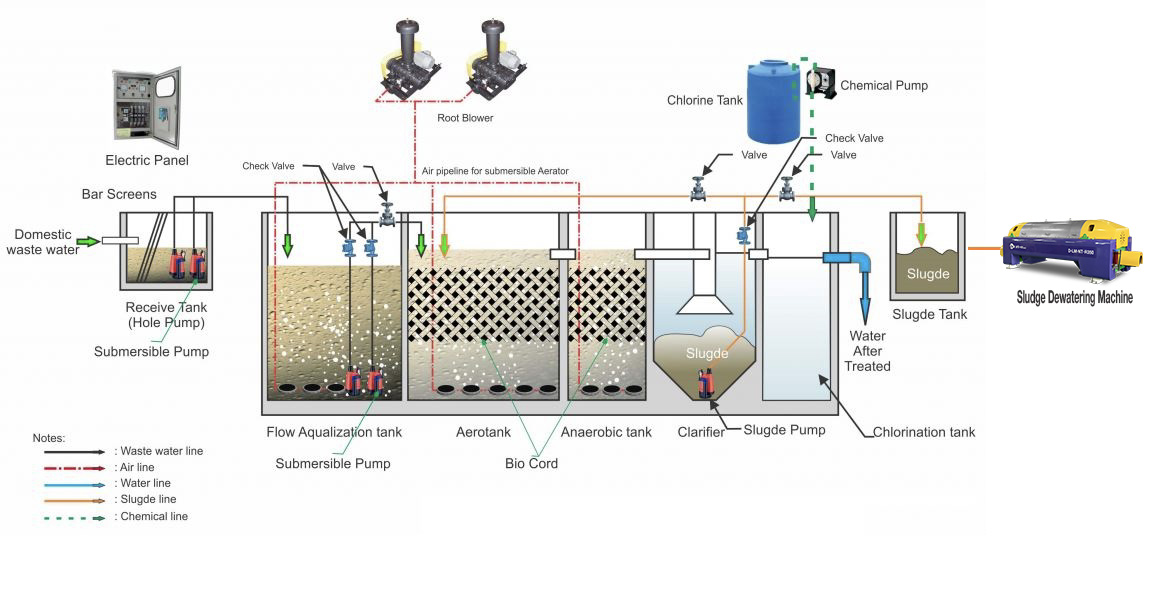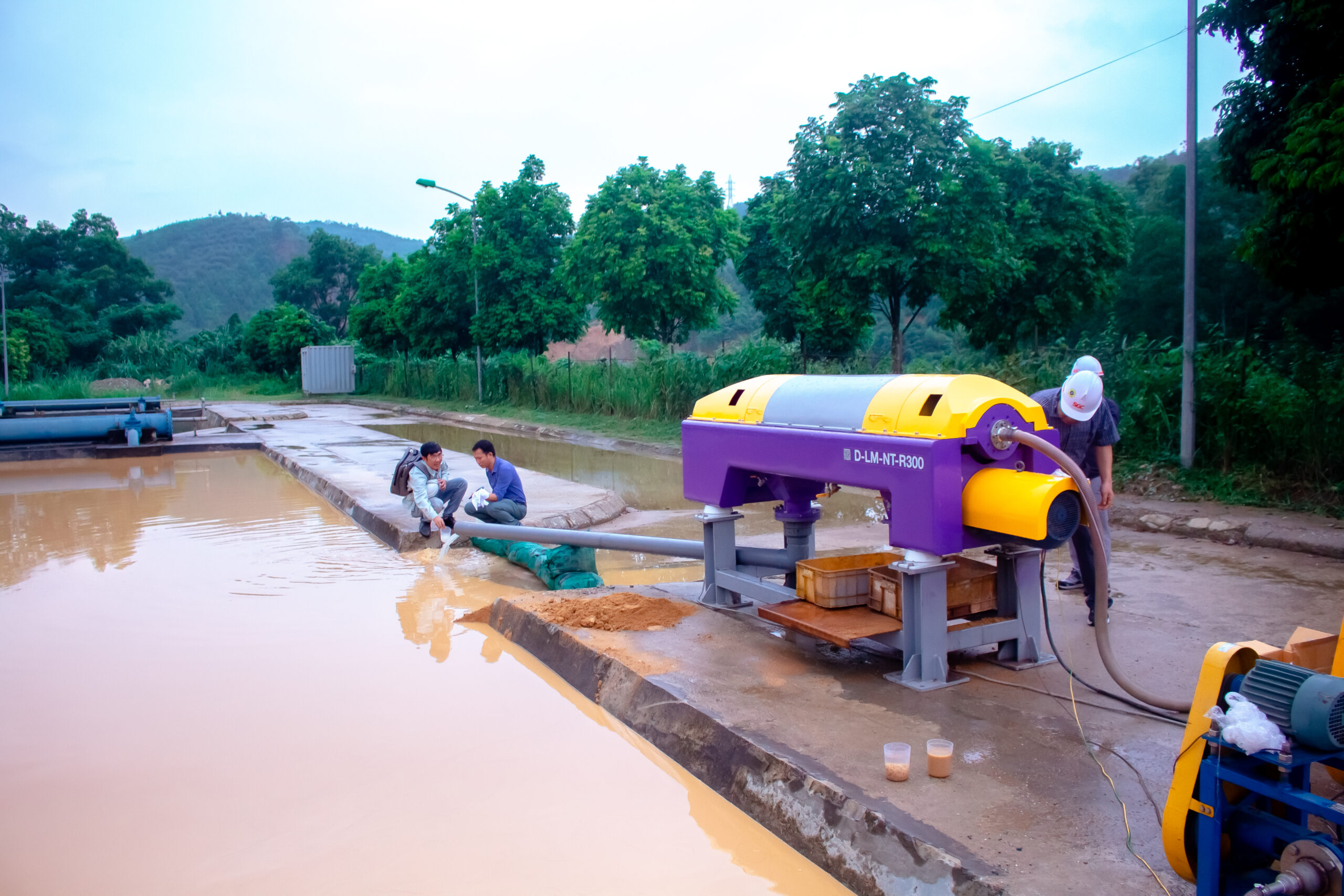Hotel wastewater treatment is not only an important factor in ensuring cleanliness and safety for the environment but also an important criterion in evaluating the quality and sustainability of hotels.

Overview of hotels and wastewater treatment
In the context of the development of the hotel industry, providing not only accommodation services but also accompanying utilities such as dining and entertainment has become an important trend. Today's hotels not only meet the needs of renting rooms, but also provide many interesting experiences such as swimming pools, amusement parks, and many other services.

However, the provision of these services does not avoid the generation of wastewater and waste. To protect the environment, the treatment of wastewater at hotels is becoming an important issue that needs to be paid attention to and solved effectively.
Benefits of Hotel Wastewater Treatment
Saving Resources and Protecting the Environment: By using advanced wastewater treatment processes, the hotel not only minimizes its negative impact on the environment but also saves valuable resources such as water and energy. quantity.
Enhance Hotel Image: Hotel wastewater treatment demonstrates the hotel's commitment to environmental protection and makes customers feel more confident in choosing where to stay.
Compliance with National and International Standards: Hotels are increasingly focusing on compliance with national and international standards regarding wastewater treatment. This can help increase your chances of attracting international clientele and joining eco-committed hotel chains.
Long-Term Cost Savings: While investing in a wastewater treatment system can generate an initial cost, in the long run, it can help a hotel save on operating costs and compliance with regulations. environment, helping to optimize profits.
Contributing to a Sustainable Society: Hotels involved in wastewater treatment are not only doing business but also part of their mission to contribute to a more sustainable society.
Origin and nature of hotel wastewater
Wastewater at hotels comes from a variety of sources, including:
- Sources from kitchens and restaurants: Wastewater contains grease, food waste, and other organic matter.
- Sources from personal hygiene: This wastewater contains pathogenic bacteria and causes bad odors.
- Wastewater from toilet facilities: Contains detergents and soaps.
- Wastewater from swimming pools: Contains residue and residual chlorine content used to kill bacteria.
Composition in wastewater and treatment process

Hotel wastewater contains inorganic, organic, and microbial components. To treat this wastewater, environmental companies often apply the following process steps:
Step 1: receiving tank
Wastewater at the hotel is divided into two main sources for treatment:
- The first source: This source originates from the kitchen and daily activities of guests and staff in the hotel. This wastewater contains residues, grease, and organic matter from preparation and cooking in hotel kitchens. After separating and filtering large wastes, this wastewater moves to the garbage collection pit.
- Second source: This source is wastewater from the pool. This water passes through the water collection line at the bottom of the pool and then is passed through the sediment filter step to remove impurities and scum that accumulate on the bottom of the pool. Some of the water is reused in the pool, and the rest is put into the hotel's sewage sump.
Step 2: Collection tank
At the wastewater collection tank, the treatment process begins. The goal here is to remove grease from the wastewater. To do this, the wastewater flows through the grease separator. In this tank, grease can float to the surface and be efficiently collected and removed.
Step 3: Conditioning tank
Wastewater after removing grease from the grease separation tank will be led into the conditioning tank. The goal here is to stabilize the flow and concentration of wastes in the wastewater. In the conditioning tank, aerators are often used to create air bubbles, which help to ensure the even exchange and disturbance of the components in the wastewater. This helps prevent sediment from settling to the bottom of the tank.
Step 4: Anoxic tank
After passing through the conditioning tank, the wastewater moves to the Anoxic tank. In this tank, microorganisms are used to break down nitrogen and phosphorus. This process helps to reduce the amount of nutrients in the wastewater and facilitates further treatment.
Step 5: Aerotank tank
Wastewater, after being pre-treated, still contains a significant amount of dissolved organic matter and other substances. This water will be fed into the Aerotank, where the biological treatment continues. In Aerotank, microorganisms work to destroy organic matter and supply oxygen to the wastewater. This helps to facilitate the follow-up process and ensures that the wastewater is treated comprehensively.
Step 6: Settling tank
In the process of wastewater treatment at the hotel, an important and indispensable part is the treatment of sludge. After the wastewater has gone through the sedimentation tank and previous treatment processes, the wastewater still contains a small amount of residual sludge particles and microorganisms.
Step 7: Sludge dewatering in hotel wastewater treatment
To completely remove these sludge particles and ensure that the wastewater is treated efficiently, hotels often use sludge dewatering. sludge dewatering is an important part of the wastewater treatment process and it helps to separate the sludge layer from the high-quality wastewater.

sludge dewatering works by applying pressure and force to the sludge in the wastewater. When this pressure is applied, clean water is pumped out and the dense slurry is separated. The sludge, after being pressed into a solid mass, can be easily stored and transported for further processing or safe disposal.
See more: Van Phuc City, Decanter Centrifuge, Municipal Waste Water Treatment Plant
The use of a sludge dewatering machine reduces the amount of sludge and at the same time optimizes the wastewater treatment process. This not only helps the hotel meet environmental standards but also reduces the cost and effort associated with sludge treatment.
Conclusion
In summary, the treatment of hotel wastewater is not only an important factor in maintaining business operations but also an opportunity to improve image, save resources, and protect the environment. Make sure your hotel complies with wastewater treatment standards to promote sustainable growth and attract environmentally-conscious guests.

we are asked to design a waste water treatment plant for 100 Room Lexus Hotel Hunza….with no harmful discharge to the adjacent lake.
Can you suggest a solution and submit a proposal please